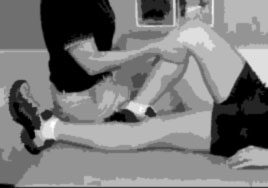
by medicaltechont | Jun 18, 2016 | Uncategorized
A recent article in The Commonwealth Fund blog, “Envisioning a Digital Health Advisor,” raises the question of being able to use smartphone apps to get real-time, accurate and personalized guidance for health concerns. While one can envision the convenience, affordability and peace of mind that would result from their use, such services face a number of hurdles before they become reality. As a result, the “digital revolution” has not yet greatly affected most people’s interactions with the health care system.
Read more at http://hitconsultant.net/2016/06/13/34369/

by medicaltechont | Jun 6, 2016 | Uncategorized
New medical technologies are here and ready to be adopted en masse by Canadians, but the marketplace is too fragmented and access too uneven for that to happen right away, said several speakers at an Ottawa forum on seniors.
The spread of new technology like smartphones that are jam-packed with sensors is happening just as the country is being hit with a wave of baby boomers crossing into old age.
Medical experts and industry representatives alike want to see new technologies embraced that would potentially take some pressure off hospitals by allowing people to do more of their health monitoring from home.
With new tech, however, comes new potential concerns, from privacy issues to affordability to ease of access.
Read more at https://www.hilltimes.com/2016/06/03/medical-technology-marketplace-too-fragmented-forum-hears/67450

by medicaltechont | Apr 24, 2016 | Healthcare, United States
As the search for everlasting beauty marches on, advancements in medical technology now offer more paths to the fountain of youth than ever.
“You need to match the person to the treatment,” said Brian Perkins, manager of his father’s Evolutions Medical Spa, which offers minimally invasive beauty enhancements. “It’s not a one-size-fits-all.” His dad, cosmetic surgeon Dr. Terry Perkins, credits the spa’s success to detailed consultations, explaining, “You need to look at it not only medically but artistically.”
More than a decade ago, with new technologies constantly hitting the market, Dr. Perkins saw options for less invasive treatments, quicker recovery times, and more natural-looking lifts. So he decided to branch his surgical practice into a medical spa, opening Evolutions in 2004. It quickly outgrew several locations but now thrives inside a 6,000-square-foot building at 350 Chapala Street, home to both the day spa (facials, massages, body wraps, scrubs, etc.) and the medical spa.
“We end up getting really good results consistently because we have good technology,” said Brian. Here’s a sampling of that tech.
Read more at http://www.independent.com/news/2016/apr/20/beauty-and-tech-merge-evolutions-medical-spa/

by medicaltechont | Feb 6, 2016 | Samsung
Who doesn’t love a good Samsung patent filing? This time, Samsung’s flirting with the idea of a smartwatch that can recognize you by your veins.
That sounds crazy, right? Apparently, it’s totally plausible. Originally discovered by Fast Company, the patent filing describes technology that works similarly to a fingerprint scanner in a smartphone. Only instead of your fingertip, the watch takes a picture of your “vein structure and characteristics,” and stores that in its database. Then, any time you have to authenticate, it’ll ensure your veins match the initial imprint.
Read more at http://www.pcworld.com/article/3030167/android/youre-so-vein-samsung-files-a-patent-for-a-vein-scanning-smartwatch.html

by medicaltechont | Jan 27, 2016 | Uncategorized
As computer technology continues to develop at an almost light-speed pace, more devices are being created to monitor human activity, without being a cumbersome accessory to everyday life.
Smart technology is now designed in many cases to adapt and mold into items that we use everyday and that can mean anything from phones, to watches and now even clothing.
The Montreal based company Carre Technologies back in 2013 invented the “world’s first biometric smart shirt” called Hexoskin and they just introduced their latest edition called the Hexoskin Smart.
Read more at http://www.techvibes.com/blog/hexoskin-wearable-tech-2016-01-21






